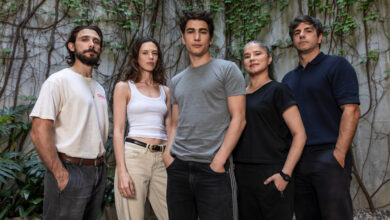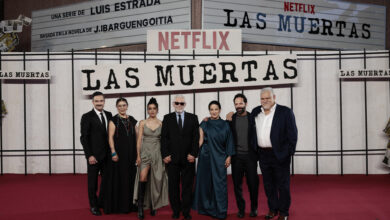“Our Father” on Netflix: The Documentary Tendency to the Absurd
This is our Review of "Our Father" on Netflix, the Streaming giant's new Denunciation Documentary..

Photo: Netflix
LatinAmerican Post | Luis Alberto Garduño Guerrer
Listen to this article
Leer en español: “Nuestro padre” en Netflix: la tendencia documentalista a lo absurdo
It was just a few months ago that Netflix presented the documentary "The Tinder Swindler", which quickly became a trend. It told the story of Simon Leviev who pretended to be a millionaire tycoon who seduced women through the internet to steal millions of dollars from them. A few days ago, a new controversial documentary entitled "Our Father" was released on Netflix and in this article we will tell you what it is about.
Jacoba Ballard knows that she was conceived thanks to fertility treatment that her mother underwent. The treatment consisted of anonymous sperm donation in which it was assumed that the same donor could only be used three times to avoid any risk that there were many and they could become related at some point, since most lived in the same locality. Curiosity to find out if she had more siblings leads Jacoba to take a DNA test and discover that the doctor who performed the fertility treatment was really her father and also learn that she would have many more half-siblings than she expected. The documentary exposes the story of former fertility doctor Donald Cline, who fathered more than 60 children by illegally artificially inseminating his sperm into women he led to believe were from an anonymous donor or even their husbands.
The film shows quite interesting themes that highlight certain problems in our society. First, the concept of rape. How far does this concept go? In the documentary they show us the testimony of a lawyer who says: “Rape can include sexual conduct that the victim does not know about, but the perpetrator does”. Referring to the women that the doctor told them that he used their husbands' sperm, but used his. Here we can see how it questions not only the definition of what is meant by rape, but also questions the lack of legislation on the subject.
In addition to this, the issue of professional ethics, in this case medical. We can guess that these insemination treatments to which the patients underwent were relatively new in the context in which they took place in the documentary and perhaps still are. But what I'm going to do is how far is it permissible to go, in an ethical matter, to achieve a medical advance like that and that goes hand in hand with the issue of legislation? Finally, the documentary shows us that the doctor never gives the reasons why he carried out those actions. However, it does denote the machismo and the position of power that this person had.
The documentary is narrated through the testimonies of some of the children who gradually discover their relationship with Dr. Cline in a dynamic way. The use of files such as videos and audios feed the story quite well. However, in the end, it feels like it comes to nothing. As if it wasn't over. It remains in how controversial the issue can be without going any further.
Netflix's trend in its documentaries
It seems that the Netflix streaming platform is committed to presenting, for the most part, documentaries with scandalous themes that do not go deep and are left open for the interpretation of the audience or simply that feed sensationalism. “Don't mess with cats”, a documentary about the crime committed by Canadian Luka Magnotta; “Aaron Hernández”, NFL player who committed three murders; and even the aforementioned "The Tinder Swindler"; are some examples. We can notice this tendency that this platform has to create controversial content in order to generate talk about them. But will it really be working for you?




